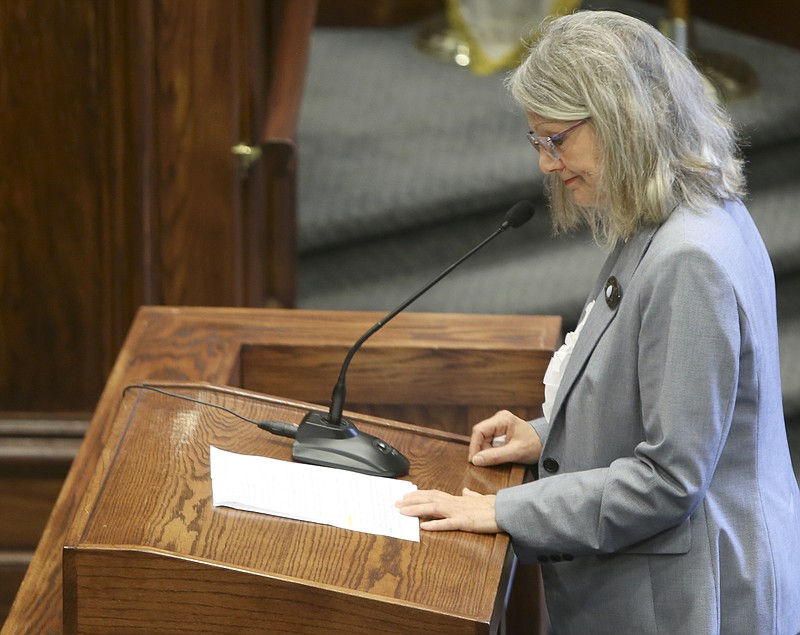Despite its quiet reception last week, a majority of Hamilton County commissioners is backing a resolution requiring the Chattanooga Convention and Visitors Bureau to adopt county travel and procurement policies.
The measure, introduced by Commissioner Tim Boyd, does not specifically name the CVB, but targets any nonprofit organization that receives county funding amounting to more than 25 percent of its operating budget. However, Boyd has repeatedly questioned the agency's spending over the last several months.
The CVB has received 100 percent of Hamilton County's hotel-motel tax revenues in accordance with a 2007 agreement. The agency received $7.8 million in lodging tax revenues in 2017 and is projected to receive $8.2 million in 2018. While supported by state and membership funds, public dollars account for over 80 percent of CVB's income.
Another affected recipient of Hamilton County dollars is the Humane Educational Society, which is set to receive $620,970 in fiscal 2018. Boyd has criticized that organization's funding requests, as well.
On Wednesday, commissioners voted 6-3 in favor of the measure, with commissioners Jim Fields, Joe Graham and Greg Martin voting against it.
"I just want to remind the commissioners this resolution is about transparency and accountability," Boyd said, later adding the measure was "an opportunity to show the citizens of Hamilton County that we walk our talk."
Just a year ago, Boyd stepped into a conflict over transparency when he attempted to exchange emails with his colleagues concerning special project money for their districts. Commission Chairman Chester Bankston shut that down, citing a violation of Tennessee's Open Meeting Act. Boyd said he didn't believe any violation would have taken place because he he intended no deliberation.
Prior to the vote, Hamilton County Auditor Jenneth Randall defended her role in auditing CVB within the scope of the 2007 resolution that hands over all the county's lodging revenue to the tourist development agency. The 10-year-old agreement calls for CVB to provide annual reports to the county.
She challenged the publication of an internal CVB audit summary that questioned travel-related expenses. Boyd has repeatedly referred this spring to internal CVB financial records, which county officials say are protected under state law.
"The internal notes that have been made public went beyond the scope of the requested work," Randall said, adding they offered no audit notes or explanation of the expenses questioned within the document. "These are some of the reasons why the released notes are incomplete and should never have been released."
The resolution also requires that a county commissioner, appointed by the commission chairman, serve on affected nonprofit boards.
"I don't want to hinder what they do for a business, and I don't think it's fair that we impose ourselves as a commissioner on their board," Graham said, adding he also supported transparency and admired Boyd for his tenacity.
CVB President Bob Doak could not be reached for comment Wednesday.
Earlier in the week, Doak voiced opposition to sitting a commissioner on the the agency's board since the CVB "was not set up as a governmental body or to have government involved in it."
Commissioners Martin and Sabrena Smedley both asked for a list of nonprofit organizations impacted by Boyd's measure.
The short answer: the county doesn't know who all the measure might impact.
"We have not done a study to see how much they get compared with their total revenue," Hamilton County Financial Director Al Kiser said.
The county gives out $14 million to nonprofits each year, but he was only aware of the two who received the "lion's share," Boyd said.
In addition to the nearly two dozen civic and charitable groups the county funds through a general fund appropriation and lodging tax dollars, the county also gives money to assorted nonprofits through various department budgets. On top of that, commissioners sometimes give their special project or travel money to nonprofits.
Mayor Jim Coppinger warned of "unintended consequences" resulting from the passage of Boyd's measure.
"The intent is for them [the nonprofits] to follow our rules, but we're not going to have someone to be the watchdog of that," Coppinger said. "It's still going to be their board that's got to do that."
Gail Ropo, director of the county's purchasing department, said her staff could help educate nonprofits on county spending policies, but she did not have the staff to police their compliance. The affected nonprofits would likely have to amend their bylaws to adopt the county policies, she said.
Boyd said the resolution's intention was not to create more work for the mayor or his staff.
Martin said he believed the commission didn't really understand the full implications of the legislation before they voted on it.
Bankston warned against making the measure more complicated than it is.
"I don't have a problem with transparency, but I believe we have added another layer of government to these nonprofits with this resolution," Martin said after the meeting.
Contact staff writer Paul Leach at 423-757-6481 or pleach@timesfreepress.com. Follow him on Twitter @pleach_tfp.
